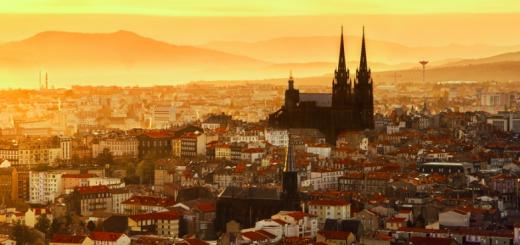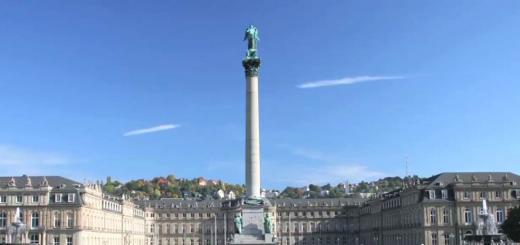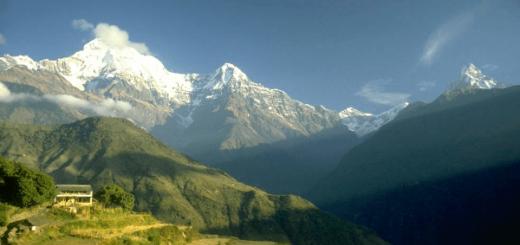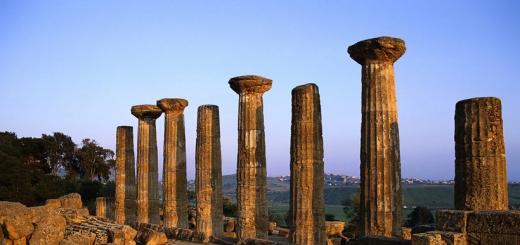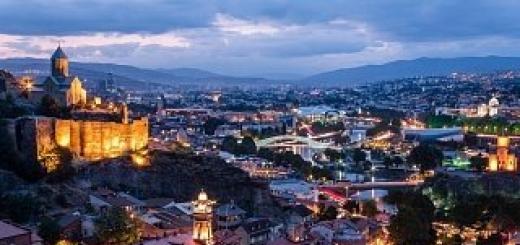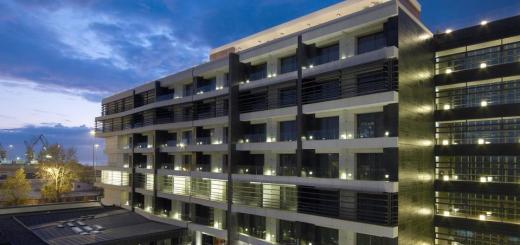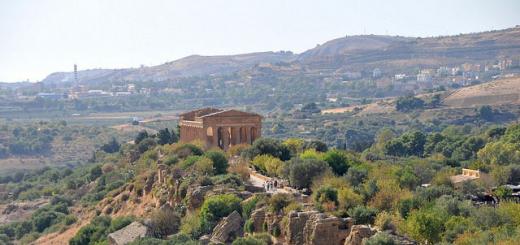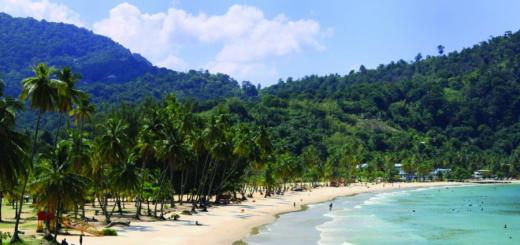A lot has been written about the dangers in any country, and not only you are interested in this issue. Much depends on how your vacation goes, not on certain circumstances, but on you and your foresight.
In the Dominican Republic, you can catch some kind of infection that is transmitted by the most common household way, not to mention all sorts of insects. In order for nothing to happen to your health, you need to follow the basic rules of personal hygiene, wash your hands, it is better to use vegetables and fruits without peel or wash them well with boiled water, and in some cases heat them. No matter how popular this resort was, but cases of cholera and other infectious diseases are common here. If there are doubts about a certain product or institution, then it is better to refuse, as the consequences can be unpredictable.
When you buy a holiday or look for information about a hotel or resort, you will most likely stumble upon beautiful photos, with clean beaches and crystal clear waters, but everything is so simple. For the Dominican Republic, such a phenomenon as typhoons is quite normal and they are not so rare. It all depends on the time of year. To avoid such troubles, it is best to come to the Dominican Republic from December to April. At this time, typhoons are very rare. And don't be lazy to check the weather forecast before your trip.
You should not communicate closely with the locals, try to keep a distance from them, especially considering the fact that part of the local population still believes and practices the Voodoo religion. No one knows how such communication may end.
As practice shows, tourists are most interested in such a danger as sharks. It's no secret that sharks in the Dominican Republic and periodically see them close to the coast. Previously, local residents fed these fish, and now, in search of food, they attack not only people, but also boats and yachts. Don't worry, this behavior of sharks is not systematic, but rather periodic, but still, before getting into the water, ask the hotel staff where it is better for you to swim.
Diving enthusiasts should also be careful, as there are really sunken ships off the coast of the Dominican Republic that attract many scuba diving. But all places are equally safe, there are those that are serious not only for health, but also for life. It is best to dive with an experienced instructor.
There is also fraud in the Dominican Republic, where without it. Some species are developed just fine. You, as a tourist, are unlikely to be able to distinguish between a real policeman and a scammer. Tourists who rent vehicles can become a victim of pedestrians who throw themselves under the wheels, but for now you will figure out what's what and yours will be cleaned to zero. If strangers make you any advantageous offer, then you should refuse it, as this is most likely a scam.
Immediately I advise you to abandon the idea of paying with a credit (bank) card. The Dominican Republic is not a country where such operations are carried out as quickly as possible and do not raise any doubts. Financial fraud in this area in the Dominican Republic is a normal phenomenon. Only upon arrival home, you may find that a certain amount of money has disappeared from your card, and you are unlikely to understand how and where this happened. And it's useless to go anywhere. It is best to pay in cash.
This is not final, but only an approximate list of the troubles that can happen to you in the Dominican Republic, but in general the country is very pleasant, peaceful and comfortable for recreation.
Insects in the Dominican Republic are inhabited by a wide variety, but mosquitoes bother tourists the most. Moreover, one of their species is able to carry the dengue virus. The most effective way to keep mosquitoes away is with mosquito nets on windows and doors.
In dry weather, when there is almost no rain, mosquitoes are practically not a concern. In hotels, bushes and other plants are sprayed with special solutions so that various insects do not breed in them.
On vacation in the Dominican Republic, you should take repellents to be protected from the very beginning of your stay in the country.
In Juan Dolio and some other resorts, midges are especially common - quite annoying insects in the Dominican Republic. During the day they are not in the sun, but at night they cause some discomfort. Therefore, when walking in the evening, it is better to wear a sweater or blouse with long sleeves and trousers. To rest in the shade, you will need repellent.
1. Do not open windows in the room. If you want to ventilate, then it is better to do it during the daytime. Use the air conditioner in the evening and at night.
Turn on the ceiling fan with the windows open at any time of the day, as mosquitoes avoid air vibrations.
2. Wear clothes that cover the skin of the arms and legs when outdoors during the hours of insect activity.

3. Use OFF brand or other brand mosquito repellent sprays that have strong protection against insect bites.
To prevent problems on vacation, avoid contact with insects, use protective equipment and dress appropriately. At night and in the evening, even in the city, use a flashlight.
Guests staying at the hotel may have less trouble with insects as the area is usually treated and there are screens on the windows and doors. Personal protective equipment against bites can be purchased directly on the spot.
Holidays in the Dominican Republic are extremely popular among our compatriots. But, some remoteness of this resort island from Russia allows tour operators to deftly disguise its small, but extremely curious for the resting brethren, shortcomings. If you look closely, dangers in the Dominican Republic lurk at every turn.
Haitians
Let's start with the simplest. The Dominican Republic splits the territory of the island of Haiti into a pair with the state of the same name. The state of Haiti, in terms of economic development, is significantly lower than the Dominican Republic. Accordingly, many black migrants regularly, by hook or by crook, make their way from the west of the island to its eastern part. They do not find work in a new place soon, but they want to eat. Therefore, try to bypass the dark-skinned French-speaking idlers or their organized group. The highest probability of meeting them is in the vicinity of the capital of Santo Domingo and along the southern coast of the island. The northern part and the Punto Cana region, for unknown reasons, are not of interest to them.

infections
The history of infectious diseases on the island has become a kind of chip. It has long passed into the category of a favorite legend, the riddle about syphilis. Until now, they have not found out who infected whom with it, the Indians of the crew of Christopher Columbus or vice versa. But if you consider that the largest percentage of Miss Universe title holders falls on girls from the Dominican Republic. Then, communication with island beauties should be approached competently, and protect yourself from a bunch of venereal diseases, which has increased significantly since Columbus times. The cholera epidemic on the island has passed into a sluggish stage, like tuberculosis in our country. But here, it’s enough to wash your hands more often and not communicate with asocial elements, especially with French-speaking mulattos.
Typhoons
That gentle and warm climate that attracts guests from all over the world is the reason for numerous, varying degrees of power, typhoons that come from the Atlantic Ocean. For this reason, hotels are not built here directly on the seashore, but at some distance. And it is better for tourists to come in a relatively calm, windless period from December to April. 
earthquakes
Another natural joy in Haiti is the potential seismicity of the region. The island is located in the zone of the Alpine mountain-building era, which has not yet ended. Now only the formation of the relief is going on. But there are also pluses. The island will become even more beautiful in the future, with mountains that have grown up. Volcanoes and thermal springs may appear on it. It will be possible to fill pools and jacuzzis with warm mineral water, as they do in Heviz and Mukachevo. And tourists just need to keep in mind the possibility of an earthquake, remember where they left their documents and be glad that the intensity of seismic waves is the lowest in the southeast of the island - the area of La Romana, Punto Cana and Saona Island.
voodoo
Tourists who came to the island for the first time should know that in addition to official Catholicism, the voodoo religion has been preserved in the central provinces of the island. To be careful or to seek meetings with its priests yourself is up to the guests of the island.

Diving
The sea in the south of the island is very shallow, densely overgrown with coral reefs. Who loves diving, at a depth to the waist, or relaxing with children - will do just fine. The sea in the north, in the Puerto Plato area, is much deeper, with good waves and depths. For surfers, this place is ideal, but only for them.
Many sunken ships around the island attract adventurers from all over the world. The gold of the Indians, the jewels of the conquistadors really lie at the bottom of the Caribbean Sea and the Gulf of Mexico. But think three times whether it is worth getting them from the bottom on the high seas, with a dubious crew and, unknown in your hotel, the captain.
sharks
Swimming in the open sea from a yacht may not appeal to those guests who are not used to swimming in a flock of different-sized sharks since childhood. Golden American youth at one time amused themselves by hand-feeding these cartilaginous fish. But they got used to it, and now they throw themselves at every yacht, like at a free canteen.

As a result, the Dominican Republic is a wonderful resort, and minor flaws can be found in any country. If you are prepared and warned about the possible risks of staying on a wonderful island, then the rest will pass like in an advertising, unshadowed by anything, video, and a series of entertainment and pleasures will turn it into the most wonderful pastime of the year.
The Dominican Republic is developing very quickly, there are more tourists every year. The government pays a lot of attention to security. The crime rate in the Dominican Republic is falling every year, which is facilitated by the good work of the security forces and the standard of living of the Dominicans.
Despite all the articles, horror stories of the guide, I confidently declare that in the tourist areas of the resort areas at the right time it is completely safe for you.
You can go to the store on your own, visit a nightclub, rent a car and drive around the city, chat with the locals. Of course, you don’t need to shy away from the black quarters, to walk at the wrong time. Those who are looking for adventure - they are sure to find.
Most of the problems arise from tourists who are looking for or entertainment for adults. Nightlife, like in any other country, is intertwined with crime and not always with honest residents.
The Dominican Republic is not safe for your things, theft, robberies and fraud flourish here. The great reluctance of Dominicans to work, the love of easy money, contributes to easy money schemes.
Theft in Dominican hotels.
Theft in hotel rooms in the Dominican Republic, unfortunately, occurs. Theft comes from suitcases and wardrobes, but also from safes.
My advice to you - leaving the room and expecting that it will be cleaned, hide everything valuable in the safe, in which you must change the password in advance.
Recently, I once again heard a story about how two tourists returned from breakfast and looked into their closed safe and did not find $ 5,000 there.
They immediately called the hotel administration and security, who in turn invited the maid to clean there that morning. When asked by the administration, the cleaning lady, of course, told that, apart from cleaning the room, she was not involved in anything.
Tourists wrote a statement to the police about the theft of money, but honestly I’ll tell you, usually this is where the case ends.
Crime on the streets of the Dominican Republic
The resorts of the Dominican Republic are no different from any other resort areas in the world. During the daytime, it is safe in the center of the resort areas, you can often meet police officers on the streets, and security guards are on duty around the entire perimeter of the hotels. At night, I would not advise you to leave the hotel with some valuable things and a large amount of money.
In dark alleys or on the road, a couple of dark guys on a motorcycle with a gun can drive up to you and ask you to give something good, including money, jewelry and phones.
If you are traveling by car, be sure to move with closed windows and doors, preferably in the daytime. In stores and gas stations, do not shine with bundles of money too much, as bad guys can follow you. In large stores, at gas stations and near banks, security guards with shotguns are on duty.
The main robberies usually occur during the Christmas holidays, on New Year's Eve, when the wealthiest tourists come and on the big Dominican holiday - Samana - Santa. This is something like our Easter holiday, Dominicans are freed from work for 3 days and rush to tourist areas.
Trips on excursions are absolutely safe, you are surrounded by employees of travel companies, drivers and local guides who never deviate from safe routes and worry about you and your property.
Sea - Safety in the Dominican Republic
The sea off the coast of hotel areas is practically safe, because of the coral reefs located near the beaches, sharks cannot swim close. According to the statistics I found on the Internet fields, I found out that in 100 years only 3 cases of shark attacks have been registered. All of them took place near the capital - Santo Domingo, just where the coral reef is missing.
Food in the Dominican Republic
Local food is very similar to the food we used to eat in everyday life. So you should not have a transition period and the so-called traveler's diarrhea. The Dominicans themselves are very fond of rice, chicken and beans, they are ready to eat it every day - 3 times a day.
They consider sea foods to be food for the poor and they do not eat them very often and they do not know how to cook them well. Alcoholic drinks in the Dominican Republic are of very good quality, there are practically no fakes, at least I have never heard of them. I highly recommend you local rum, it is usually consumed in cocktails.
Roads of the Dominican Republic
The Dominican Republic has very good roads. Wherever you go, I guarantee your trip will not be associated with potholes or off-road.
We ourselves often travel to different parts of the Dominican Republic and use toll roads more often, the payments at checkpoints themselves are not so big, but they shorten your journey by two, and sometimes even three.
For example, to get to the capital Santo Domingo at all checkpoints you will need only 250 pesos, but you will save 3 hours of driving and this is more than 1000 pesos saved on fuel.
Traffic in the Dominican Republic
Traffic in the Dominican Republic is different from the traffic you are used to at home. Of course, all drivers have a driver's license, but the rules of the road here are purely advisory in nature. A car or a motorcycle moving in the oncoming traffic will not surprise anyone here.
The main thing is that he does not interfere with anyone. A police officer, so rarely seen on the roads of the Dominican Republic, first of all looks at the driver's seat belt.
When renting a car, be extremely careful when moving along the roads of the Dominican Republic, often look in the rear-view mirrors, motorcyclists can appear from your left or right very suddenly, and there are more than enough of them.
When approaching an intersection, slow down and drive through it slowly, Dominicans do not pay attention to the rules of the right hand at intersections, they move chaotically, but carefully. Traffic lights are rare on local roads.
In the resort areas there are a lot of people who came here from the other half of this island from Haiti. They are slightly different from the local population.
They are often talked about in the eyes of a smile, and behind a machete. Many of them work part-time as taxi drivers on motorcycles, some collect sugar cane, many work on construction sites and a large number have legalized and work in hotels.
But at night peaceful Haitians fall asleep and the mafia wakes up. Of course, there are a lot of great people among Haitians, but extra caution, especially at night, does not hurt. 
According to travel agents, the Dominican Republic is a safe place to visit. However, this is not quite true. For example, according to statistics, the crime rate in the country is one of the highest in the Caribbean. In addition to the risks of a criminal nature, the traveler will face other dangers here, which you need to know about in advance.
Terrorism and crime
There is practically no terrorist threat in the Dominican Republic. However, unrest among the local population poses a danger, often developing into riots and clashes with the police. Especially often the situation escalates on the eve of elections. It is recommended to avoid going to poor areas and avoid demonstrations.
Crimes such as muggings, pickpocketing, credit card fraud and car theft are very common in the Dominican Republic. The list of the most popular things that pickpockets pay attention to is headed by passports. It is worth keeping a close eye on cash, credit cards, driver's licenses, airline tickets - all this is best kept in a hotel safe. If documents are necessary for any action, then a photocopy is usually enough.
The most common type of crime is street robbery. Robbers operate day and night; groups and alone; on foot and on motorcycles or bicycles. In the latter case, they drive up to the victim, grab bags, mobile phones, cameras and quickly leave. Such crimes are rarely solved. Therefore, it is recommended to watch out for motorcyclists passing by, and not to carry phones and cameras on laces or in hands.
You can not leave valuables on the beaches and in cars - the car can be robbed even in the parking lot of a hotel or supermarket. It is better to keep money in different places, so that during a robbery you will not be left completely without funds. You should not go out after drinking alcohol - drunken tourists most often become victims of criminals.
Due to the high incidence of credit card fraud, their use in the Dominican Republic should be kept to a minimum. ATMs should be used only in reputable establishments or branches of international banks. Even after leaving the country for several weeks, keep an eye on the balance of your card - scammers can postpone their plans for a while so that the cardholder does not suspect anything.
You need to exchange currency only at official exchange points - otherwise there is a great risk of becoming the owner of counterfeit banknotes.
In recent years, the number of deliberate murders per 100,000 inhabitants in the Dominican Republic has been about 25 per year (for comparison, in Russia this figure is slightly more than 10).
Road safety
Roads in the Dominican Republic are quite dangerous. At the entrances to the settlements there are armed police posts - they can stop the car to check documents.
On local roads, it is easy to become a victim of scammers dressed in police uniforms. Their "business" is to extort "fines". Real police officers can be distinguished by the inscriptions "AMET" on cars or motorcycles. If you are fined by the police, be sure to ask for a receipt, which must be paid at the AMET branch. Remember that the Dominican Republic allows the free carrying of firearms, so its presence does not mean that its owner belongs to law enforcement agencies.
Another danger on the roads is that locals sometimes throw themselves under the wheels in order to subsequently receive monetary compensation from the driver. Almost all laws in the country are arranged in such a way that the Dominican will always be right.
Natural disasters and natural hazards
Earthquakes and hurricanes are not uncommon in the Dominican Republic. Houses here, as a rule, are built without considering the seismic hazard. Tsunamis are also a major threat.
Tropical cyclones and hurricanes are most frequent between July and August. You can find out about their approach from the local media.
Most Dominican beaches are protected from the sea by coral reefs that do not allow unexpected visitors such as sharks, barracudas or moray eels to swim there.
Health care and medicine in the Dominican Republic
The quality of medical care is low; in addition, the treatment is quite expensive. If minor health problems can be solved in any hospital, then if you need, for example, a serious surgical intervention, you will have to go to Santo Domingo.
When going to the Dominican Republic, it is advisable to purchase medical insurance - it will allow, in which case, to avoid serious additional costs.
The island has a high level of solar activity, so it is recommended to bring sunscreen and glasses, as well as light clothing.
It is better not to use local tap water for drinking - it is advisable to buy mineral or purified bottled water.
In the Dominican Republic, there is a risk of contracting all diseases found in tropical and temperate climates. Dengue fever, malaria, yellow fever, swine flu, tetanus, hepatitis - this is not a complete list of diseases that can be caught here.
The prevalence of HIV infection is moderate. There are about 60 thousand HIV-infected people in the country, which is about 0.6% of the total population (for comparison, in Russia - about 0.7%).








